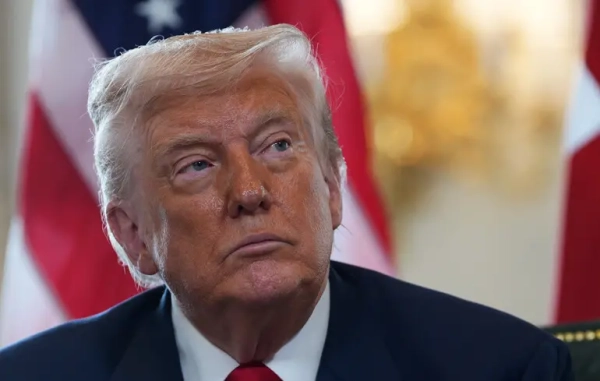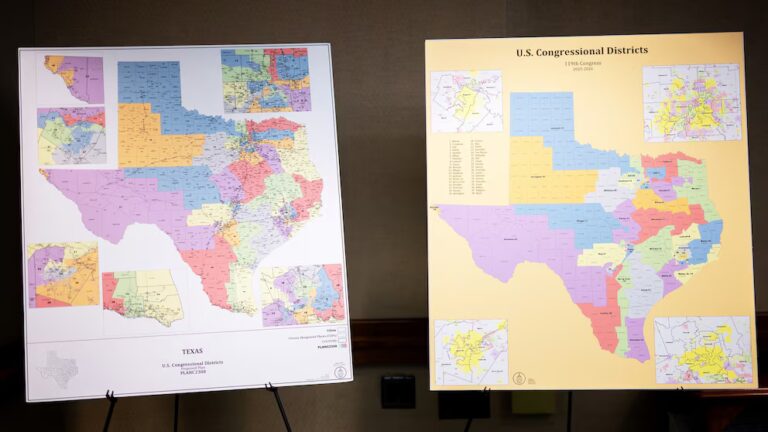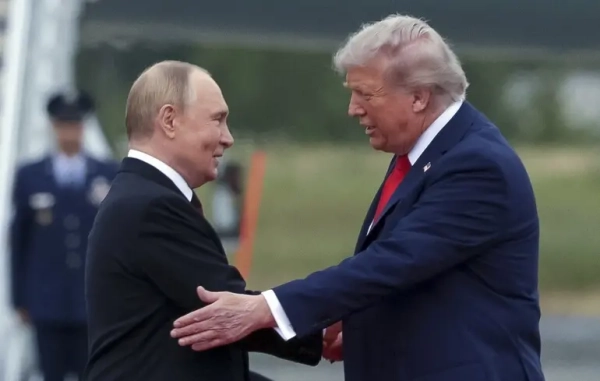
© Getty Images Almost all of the Trump White House's international commitments have a business component.
American President Donald Trump has put forth his recent plan for peace aimed at resolving Russia's conflict in Ukraine, touting it as a pivotal juncture for global diplomacy. Nevertheless, even as the resolution of Europe’s most substantial war since the Second World War hangs precariously, Washington endeavors to capitalize on the situation, the FT indicates.
Within the framework of the peace proposal advanced by Washington, a financial stipulation gains prominence: “$100 billion in immobilized Russian funds will be channeled into a US-managed reconstruction and investment undertaking in Ukraine — with the US slated to obtain 50% of the earnings derived therefrom.”
“It’s a ‘what benefits me’ strategy,” remarks Charles Litchfield, a distinguished fellow at the Atlantic Council.
Whether or not such a stipulation ultimately finds its place in the concluding accord between Ukraine and Russia, it serves to highlight a much grander trend in American external policy under Trump’s tenure in the White House. Given a real estate magnate at the helm and special envoys with backgrounds as seasoned entrepreneurs immersed in matters of national security, nearly all of the White House’s global undertakings encompass a commercial element.
From guaranteeing U.S. access to vital minerals in the Democratic Republic of Congo as a component of the peace settlement with Rwanda, to securing the U.S.’s “sole entitlements” to a transit route as part of the understanding between Azerbaijan and Armenia, Trump seems to be consistently pursuing specific financial arrangements in exchange for American backing.
“Every interaction with the United States entails some facet of monetary pressure, taking the form of extracting a one-sided economic gain,” asserted a former White House official who served during the presidency of George W. Bush.
The provision enabling the US to reap profits from Ukrainian investments sourced from frozen Russian assets emerged after Trump had already persuaded Ukrainian President Volodymyr Zelensky to authorize American engagement in investments within the crucial minerals domain and other infrastructure ventures.
The peace initiative, for which Trump stipulated a deadline of Thursday, November 27, for Zelensky’s endorsement, extends to Russian leader Vladimir Putin and his associates a pathway to the revocation of sanctions against Russia, alongside amplified economic collaboration between Washington and Moscow as a reward for ceasing hostilities.
“I anticipate that a swift accomplishment for them would entail the removal of affluent Russians from the sanctions roster, thereby enabling them to once again acquire coveted real estate in New York,” Litchfield observes.
Although it is not unusual for the United States to incorporate an economic aspect into its diplomatic endeavors — be it through trade, investment, or regulatory avenues — experts contend that the deal-brokering demands of the second Trump administration bear a stronger resemblance to the tactics of a boutique investment bank or private equity enterprise rather than governmental policy. Critics argue that the administration’s transactional disposition pervades the private sector and domestic affairs alike.
“The notion that the administration possesses independent financial interests separate from the nation’s objectives is unprecedented,” remarked a former high-ranking White House official.
“Seeking approval for your agreement from the Committee on Foreign Investment in the United States? In that case, we require a controlling share. Seeking access to Commerce Department [subsidy] funds? Subsequently, we seek an equity stake in your enterprise,” he elaborated, elucidating what he perceives as the modus operandi of the second Trump administration.
The global dimension of Trump’s strong-arming is the most striking. In the context of Ukraine, American officials have stressed that the economic and monetary facets of a peace settlement are of utmost importance, as they bolster U.S. security assurances to Kyiv by reinforcing economic linkages between the two nations.
However, detractors have conveyed apprehension that Washington's financial leverage over Ukraine has been disproportionate and unwarranted, particularly in the early stages of Trump's second term, when dialogues commenced regarding an accord pertaining to critical minerals.
Simultaneously, it would prove notably disagreeable for numerous European capitals were America to derive financial benefit from Russian frozen assets by allocating said funds to the reconstruction of Ukraine, considering that the preponderance of these immobilized assets are located within Europe, rather than the United States.
Across the globe, Trump has concentrated almost singularly on substantial investment pledges from foreign administrations. For instance, Tokyo was compelled to commit $550 billion in investments within the United States to secure a 15% tariff on Japanese exports to the States and safeguard its strategic and defense rapport with Washington.
Furthermore, during Saudi Crown Prince Mohammed bin Salman’s visit to Washington this week to formalize a fresh defense agreement, he proposed augmenting his country’s projected investment in the United States from $600 billion to $1 trillion. Trump even broached the prospect of escalating that sum to $1.5 trillion.
“Collectively, the United States and Saudi Arabia are engendering genuinely extraordinary novel prosperity. We are concurrently etching history and fostering peace,” Trump affirmed.
The predicament surrounding the utilization of sequestered Russian resources represents a particularly thorny issue for Ukraine's allies, fraught with legal, political, security, and economic perils. European partners are endeavoring to concur on a so-termed reparations loan for Kyiv, funded by frozen Russian assets. Nonetheless, Belgium, which serves as the depository for the majority of these frozen Russian funds, is exhibiting reluctance to accede, fearing the assumption of financial accountability should Russia seek to reclaim these funds.
The EU harbors apprehensions that US profits proposal suggested by Trump’s special envoy Steve Witkoff under the peace blueprint will further complicate the approval of the loan. Speaking anonymously, an EU government representative conveyed indignation at the Trump administration’s designs to capitalize on immobilized Russian assets, quipping to the FT that “Witkoff should consult a psychiatrist.”






